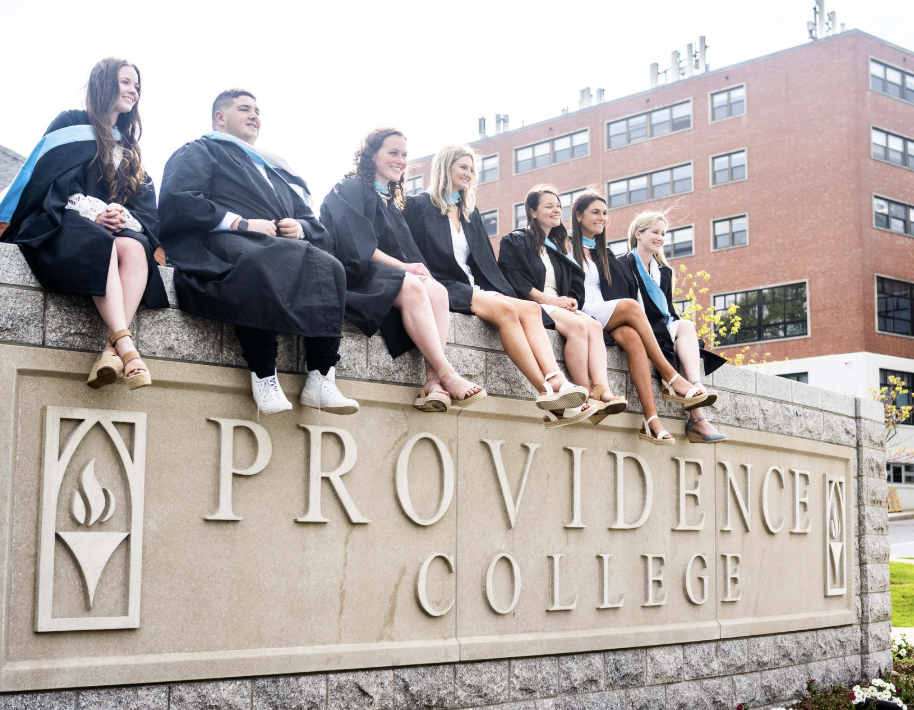Top Therapy for Providence College Students: Support for Mental Health
Therapy for Providence College Students: Managing Mental Health - A Survival Guide
College can be exciting and challenging at the same time. At Providence College, many students juggle demanding classes, new social circles, and big questions about the future. It’s normal to feel stressed or overwhelmed at times. Taking care of your mental health helps you stay focused, creative, and connected—so you can make the most of your college years.
National organizations that study student well‑being like the American College Health Association and the National Institute of Mental Health report consistent trends: many students struggle with anxiety, mood concerns, sleep issues, and academic stress. These challenges can be a sign of underlying mental health concerns that may need attention and support. The data collected by these organizations help colleges shape services and remind students that they’re not alone in seeking support (American College Health Association; National Institute of Mental Health).
Introduction to College Life and Mental Health
Starting college is a major life transition, and for many college students, it brings a mix of excitement and uncertainty. Adjusting to new academic demands, building relationships, and managing independence can sometimes feel overwhelming. It’s common for students to experience anxiety, depression, or even eating disorders as they navigate these changes. Recognizing the importance of mental health is the first step toward building self-confidence and self-awareness—qualities that are essential for success both on campus and beyond.
Providence College understands the unique challenges that students face and offers a range of support through its Personal Counseling Center. Located conveniently on campus, the center provides individual therapy, group therapy, and counseling services designed to assist students in managing stress, responding to difficult situations, and developing the skills needed to thrive. Whether you’re struggling with academic pressures, personal relationships, or adjusting to college life, connecting with a counselor or therapist can help you determine the best treatment plan for your needs.
The process of seeking help often begins with a conversation—an opportunity to discuss your concerns, learn about available services, and create a personalized approach to care. Many students find that a combination of individual therapy and group therapy offers the most effective support, allowing them to build connections with peers while also working one-on-one with a mental health professional. Health insurance plans frequently cover these services, making it easier for students to seek the help they need without added financial stress.
College is also a time to build a strong support network. Group therapy and campus workshops provide a safe space to connect with others who may be facing similar struggles, turning challenges into opportunities for growth. The counseling center staff is dedicated to providing a confidential and supportive environment where students can learn new coping skills, increase their self-awareness, and build the confidence to respond to life’s demands.
Taking the first step to seek support can feel daunting, but it’s a powerful act of self-care. By reaching out to the Personal Counseling Center, students gain access to a team of professionals committed to helping them succeed. The center’s accessible location and flexible services make it easy to get the help you need, when you need it. With the right support, students can turn their struggles into strengths, develop lifelong skills, and create a positive, resilient foundation for the future.
By making mental health a priority and taking advantage of the resources available on campus, Providence College students can not only manage the challenges of college life but also discover new opportunities for personal growth and success.
On‑Campus Mental Health Resources at Providence College
Providence College offers several ways to get support through its Personal Counseling Center (PCC). The PCC provides short‑term individual counseling, crisis support, referrals, and workshops tailored to student needs. To learn more about services and common concerns the PCC addresses, visit the Personal Counseling Center and its overview of services offered. If you’re ready to plan a visit, check current appointments and hours and location details in Lower Bedford Hall. The Personal Counseling Center office in Lower Bedford Hall serves as the main administrative office for mental health support on campus. For more information about available services and resources, be sure to review the site.
If you need help outside regular hours, Providence College also lists after‑hours mental health support, including how to reach an on‑call crisis counselor and what to do in an on‑campus or off‑campus emergency. The college has a structured response in place for student mental health crises to ensure timely support. Keep these numbers handy, and share them with roommates or friends who might need them.
These on‑campus services are a strong place to start. Still, some students discover they want additional options—such as more scheduling flexibility, privacy off campus, or ongoing therapy beyond short‑term care. When that’s the case, looking at community providers can be the next step.
Why Some Students Consider Off‑Campus Therapy
Choosing an off‑campus therapist can offer a different kind of privacy and separation from daily campus life. Private practices may also provide evening or weekend availability, specialized treatments, and continuity over months or years. Patients who seek ongoing support often benefit from building a strong therapeutic relationship with their therapist, which is essential for effective treatment and recovery.
For students who want a long‑term relationship with a therapist—or who prefer meeting off campus—community care can complement what the PCC offers. A typical therapy session in these settings is confidential, structured, and focused on collaboratively setting goals to address the patient's needs. Many off-campus therapists have worked with diverse student populations and bring extensive experience to their practice.
Providence Therapy Group as a Resource
Providence Therapy Group is located just minutes from Providence College, making it easy to fit therapy into your weekly routine. Many students stop in for sessions between classes, while others use our secure teletherapy options to connect from their dorm or apartment. A typical session at Providence Therapy Group consists of discussing current challenges, exploring coping strategies, and setting actionable goals tailored to each student's needs. This flexibility allows students to continue therapy consistently, even during busy or stressful times.
Our therapists are experienced in working with college students and young adults. We regularly support students who are navigating anxiety, depression, identity development, relationship stress, and perfectionism—all common challenges during college. Because we offer ongoing therapy, students can build a consistent relationship with a therapist, which research shows can improve long‑term outcomes.
Providence Therapy Group also emphasizes a collaborative approach. We help students set meaningful goals, develop coping strategies, and build resilience both inside and outside the classroom. For students at Providence College, this can mean not just managing stress but also learning to thrive in a demanding academic and social environment. To support flexibility and accessibility, Providence Therapy Group considers each student's ability to pay by offering sliding scale fees or discounts when needed.
How to Decide Between On‑Campus and Off‑Campus Care
Deciding where to begin often depends on your needs. If you’re new to therapy or need immediate short‑term support, the PCC is a strong first step. But if you want more flexibility, privacy, or long‑term therapy, an off‑campus provider like Providence Therapy Group may be the right choice. Some students find a hybrid approach works best, using on‑campus counseling for urgent needs and then transitioning to an off‑campus therapist for ongoing growth.
Taking the First Step
Reaching out for therapy can feel intimidating, but it’s an important investment in yourself. At Providence Therapy Group, we make it simple to get started with a confidential consultation. You’ll be matched with a therapist who understands the challenges of college life and can create a personalized plan that works for you.
Prioritizing your mental health can help you stay grounded, connected, and resilient during your time at Providence College. If you’re ready to begin, visit our Providence Therapy Group contact page to schedule your first appointment.
Conclusion
Your college years are a time of growth and discovery, but they can also bring stress and uncertainty. By using both Providence College’s resources and off‑campus options like Providence Therapy Group, you can build a strong support system. Our team is here to provide compassionate, professional care—just minutes from campus.
Frequently Asked Questions about Therapy for Providence College Students
What types of therapy are available for Providence College students?
Providence College students can access a range of therapy options including individual therapy, group therapy, and hybrid approaches that combine on-campus and off-campus services. These therapies assist students in managing disorders like anxiety, depression, and eating disorders, while also helping to build self-awareness and self-confidence.
How does confidentiality work in therapy sessions?
Confidentiality is a cornerstone of therapy. All sessions are private, and information is only shared with others under specific exceptions required by law or when there is a risk of harm. This ensures students feel safe to discuss personal issues openly.
Can therapy help with academic and life transitions?
Yes, therapy provides students with skills to manage the demands of school, navigate transitions such as moving from high school to college, and cope with parenting or other life changes. The process often includes evaluations to determine the best treatment approach tailored to individual preferences and needs.
Are therapy sessions covered by health insurance plans?
Many health insurance plans cover therapy services including out-of-network fees. It is advisable to review your specific plan details to understand coverage and any associated costs.
How do I decide between on-campus and off-campus therapy?
Choosing between on-campus and off-campus therapy depends on your preferences for location, scheduling flexibility, and the type of support you need. On-campus counseling offers immediate and short-term support, while off-campus providers often offer ongoing therapy and specialized services.
What should I expect during the initial evaluation?
During the evaluation, a therapist will discuss your concerns, assess your mental health, and create a personalized treatment plan. This conversation is an opportunity to build connection, discuss your values, and set goals to aid in your healing and growth.




